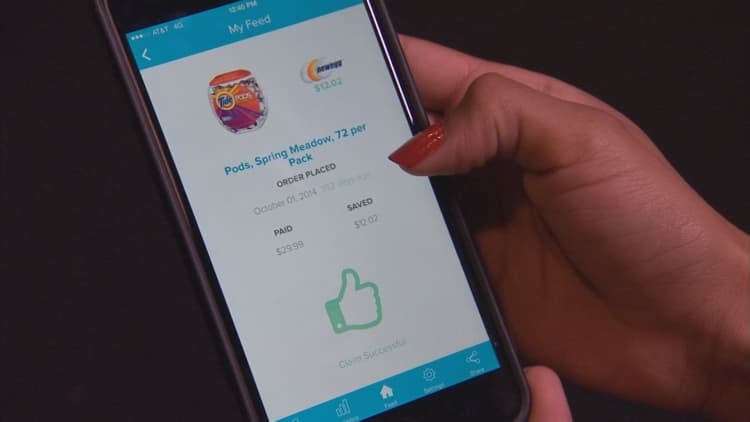
Tech start-up Paribus is looking out for consumers — by looking into their email.
It's part of the company's effort to keep retailers honest amid the blizzard of sales offers that enable consumers to claim the difference from a previously purchased item
"All these stores guarantee if you buy something and it goes on sale later, you're entitled to this difference in form of a refund. Most people never check or know how to get this. What we do is automate that process," Eric Glyman, Paribus co-founder, told CNBC's "On the Money" in an interview.
The company estimates $15 billion in refunds for online purchases go unclaimed every year. And e-commerce giant Amazon has been estimated to alter its prices more than 2.5 million times a day.
Here's how Paribus aims to save users money: After linking your email account to Paribus, the company will scan your inbox and search for receipts. The emailed receipts are then pulled into Paribus' servers and its technology goes to work.
It looks for price drops, or coupons that could have been applied to the purchase. When the consumer is eligible for a refund, the company automatically files a price adjustment claim on their behalf.
Paribus takes a 25 percent cut, and the technology supports about 20 online retailers — including Amazon and Zappos. The company says they have saved consumers $500 million dollars since officially launching in May 2015, with nearly 250,000 users to date.
The company is tackling a growing market. Nearly 10 percent of all retail sales came from the Web last year, surpassing $340 billion. Analysts point out that when subtracting items not normally bought online like fuel and cars, e-commerce comprised all last year's retail sales growth and then some.
Privacy vs. lower prices
In a world filled with data breaches and hacking, privacy concerns have come front and center in people's minds. Security snafus at retailers and banks have raised the stakes for cybersecurity.
As a result, giving a company access to your personal email may sound scary. However, Paribus co-founder and chief technology officer Karim Atiyeh assures they are not reading your personal emails.
"We have a tokenized access to your mailbox which allows us to pull only receipts," Atiyeh said. "So based on the subject and sender, we can know what a receipt is and we can pull into our servers for analysis."
"Anything that is not a receipt stays in your inbox secured by Gmail, Hotmail, whatever service you use," Atiyeh added.
Glyman insists the company isn't trying to do what most other technology companies do — namely, selling a product or personal data to third parties.
"Most things out there are either trying to sell things to you, or you are the product. They'll sell your information. We don't do anything of the kind," he told CNBC.
"Instead we build technology that acts as your agent. So if something has changed after you've bought something, if you missed a better deal, or you missed a coupon, it will spring into action right for you," Glyman added.
If granting a company access to private email is a worry for shoppers, some users recommend setting up a separate email account for shopping websites. That way, Paribus is only linked to your "shopping" email account, and everything else is separate.
"On the Money" airs on CNBC Saturdays at 5:30 am ET, or check listings for air times in local markets.




